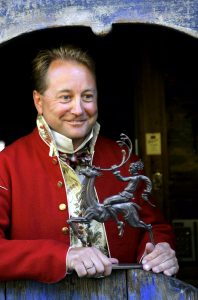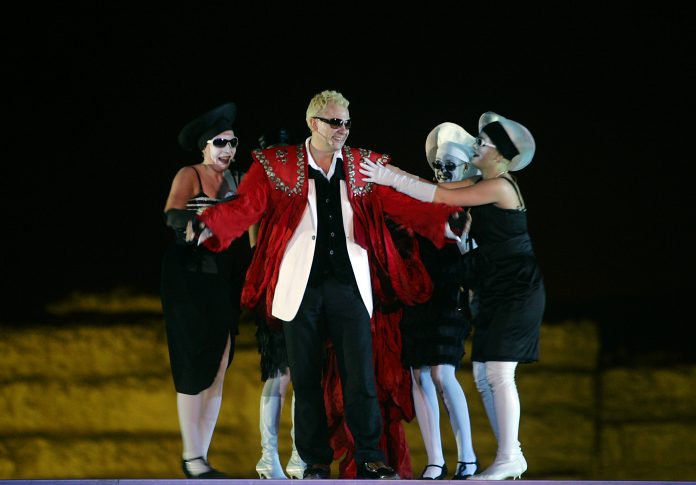(THIS ARTICLE IS MACHINE TRANSLATED by Google from Norwegian)
14. November for 150 years ago our national drama came out Peer Gynt at Gyldendal's publishing house in Copenhagen. With the play, Ibsen criticized Norwegian national romance in a national romantic way.
Ibsen had been skeptical of national kitsch and excessive Norwegian worship. When in 1851 he published the journal Andhrimner with Aasmund Olavsson Vinje and Paul Botten-Hansen, he slaughtered the now forgotten author PA Jensen's drama Holder's Home. The play was so overly national that it parodied itself, just like the opening of the Lillehammer Olympics in 1994: It was full of "national Flitterstas". Ibsen insisted that the national author should instead "announce his work in Grundtone, which echoes us from Fjeld and Dal, from Li and Strand, but above all from our own Inner".
The death of national literature. But this basic tone has been muted. Jon Haarberg has in the fun and learned book No, we don't love anymore, convincingly documented that the epoch of national literature is over. It lasted from 1850 to 2000. A highlight is the dry-white analysis of the King's New Year's speeches. Haarberg shows that the references to the Norwegian fiction canon have increasingly disappeared from the value system of the king's ghostwriter. Our fictional writers no longer help us define national identity: Literature has lost the power to hold the nation together.
Most of what is published here in the country has never been fiction; Case prose is also identity-creating.
Haarberg neither regrets nor applauds this development – he notes. The class struggle's reviewer, on the other hand (21.10.17), completely justifies demanding that Haarberg should instead "come up with new stories for Norwegian literature and literary tradition: Stories that for us today and for the Norwegian language community in the future can bear the same truth – and have the same changing power – as the national literary once had it. " Haarberg should have saved us!
I think the limitation of Haarberg's book is another, namely that he only studies the relationship between nationality and fiction. This is not intended as a critique, since the author has deliberately limited his project in this way. But most of what is published in this country has never been fiction. And non-fiction is also identity-creating.
Nationalism. The notions of nationality have changed over time. It began in the 1700th century with the import of Montesquieu's ideas about the relationship between nationality and climate in The spirit of the laws (1748). The Spaniards were cowardly and lazy, while the French were brave. The reason was that it was colder in northern France than in Spain, Montesquieu said. This was transferred to the relationship between Norway and Denmark. When it is cold, the blood goes to the heart, and the heart is – as everyone knows – the center of courage. It is cold in Norway – that is why we are brave, while the Danes are cowardly and feminine. After a few years in Copenhagen, Norwegian students were almost transformed into hermaphrodites, wrote Bishop Matthias Bonsac Krogh in 1811. Therefore, it was important to have a separate university in this country.
Then the language became the most important nationality factor, and Aasen and Vinje began to create the new Norwegian in the 1850s. Danish actors had to move away from Norwegian scenes. How else could the people learn to tease themselves? The Danes did not need to speak either. The physiognomy and gestures were different – you could see in a Dane that he was Danish long before he opened his mouth, according to philosophy professor Marcus Jacob Monrad.
In the Liberal Party's mobilization towards the dissolution of the union with Sweden, the skull shape became a national marker. The political conflict was due to the fact that there were two different races in Norway: the long-skulls and the blonde warriors were for union dissolution, while the moderates and right-wingers, the cowardly short-skulls, were against, Andreas M. Hansen claimed in Norwegian Folk Psychology. Hansen's book from 1899 was first printed as a mile – long series of articles in the magazine Ringeren in 1898, edited by Bjørnson, Sigurd Ibsen and Ernst Sars.
Much of Norwegian nationality thinking historically focuses not only on the language community, but also on skull shape, climate and geography. Nationalism does well without fiction national literature. This was also evident in the debate on "Norwegian values" before and after the election on 11 September this year.
Strawberries and waffles. Minister of Culture Helleland made a stop on the farm of the Center Party's Ola Borten Moe on his pilgrimage to Nidaros Cathedral. The journey was to breathe life into the debate about Norwegian values. On 30.07.17, VG was able to state that "there the SP deputy leader invited for coffee, waffles and strawberries – good Norwegian values - when the Minister of Culture passed by". Helleland preached to VG: "Yes, and we must dare to be Norwegian. (…) We must not become so neutral that we forget where we ourselves come from, and that it is the Christian cultural heritage on which this society is built. "
Neither the word «waffle» nor the waffle as such originates from Norway, and the coffee comes from the Muslim world.
During the three and a half months that have passed since then, there has been a lot of Norwegian values in the newspapers with many imaginative proposals for nationality markers. Most initiatives lack a clear distinction between state and nation. Fortunately, it is not a condition for being a Norwegian citizen that one professes the Christian cultural heritage. Many ethnic Norwegians rarely eat waffles and strawberries. Professor of political science Trond Nordby could admittedly enthusiastically confide to Universitas (30.03.11) a few years ago that "large parts of Norwegian society are built on waffles and hard work". But the Norwegian waffle is imported from Sweden, and the first waffle irons were developed in the Netherlands and Germany in the 1300th century – even though the waffle is much older than this. Neither the word «waffle» nor the waffle as such originates from Norway, and the coffee comes from the Muslim world. Strawberries are known to grow not only in Norway, but in many countries in the northern and southern hemisphere. Thomas Hylland Eriksen and others frolic in the 1990s in similar examples to show how arbitrary national characteristics are. But the notion of nationality as an indefinable cocktail of language, geography, lineage and culture, has not disappeared for that reason.
Ash ladders and «Norwegian values». Recently, the film about Askeladden was directed by Mikkel Brænne Sandemose. Journalist Landverk in the newspaper Gjengangeren (Horten) states that Askeladden «is a symbol of good Norwegian values such as helpfulness, determination, courage and ingenuity. He usually wins the king's daughter and half the kingdom. " It is typically Norwegian to become king! "It's very important to show adventure on film. It must be these days, when it comes to Norwegian values and culture. This is a large part of the Norwegian cultural heritage, and the first time Askeladden is on film since Ivo Caprino's film adaptations ", says Elias Holmen Sørensen, who plays Pål in the film.

Photo: Morten Holm / SCANPIX
Many have tried to mint that "Norwegian values" are in focus. On 28.09.17, NTB was able to report that the team behind «Adapt» will have the pleasure of designing the Government Quarter: «We have developed Adapt based on the words beautiful, dignified, friendly and lasting. We wanted to design the Government Quarter – an attractive area for people to travel to, which conveys Norwegian values as openness, and as a good and inclusive workplace. In addition, it is important that the solutions withstand the test of time ", says Gudmund Stokke, leading partner and head of the Nordic Office of Architecture.
Many agree that a key value in Norway is trust. In Museumsnytt, Signy Norendal states that museums are special carriers of this value: “Our museums are in a special position, by being independent communicators of research-based knowledge. In an exchange of words characterized by uncertainty, conspiracy theories, vaccine resistance and fake news, these institutions have the opportunity to function as oases; places for secure, credible information and open discussion. ”
Peer Gynt is alive! Youth is the future of the country. While Norway has had a fantastic development of prosperity and corresponding growth in the oil fund from 2000 until the oil crisis in 2014, the students' finances have deteriorated in the last 20 years, Dagens Næringsliv reported on 20.09.17. For Peer Gynt shit in Norwegian youth. He is more interested in unfolding in the international arena.
Peer Gynt is living well there. He does have shares in Nammo at Raufoss, which exports weapons to Saudi Arabia and the United Arab Emirates. And he wants to pump up as much Norwegian oil as possible, because it pollutes the least in the world. He is also heavily involved in salmon: Activists who point out that our fjords are being polluted are traitors who damage Norwegian export interests! He bought into oil sands early on, but learned from Statoil and sold out again to improve his "image". Peer is an ashtray in Norwegian business, but also a "world citizen of temperament", as Ibsen said. The UN, NATO and the Council of Europe are Peer's home ground. He resolves many conflicts on many continents, loves international diplomacy and often quotes Terje Rød-Larsen's words that Norway should play a geopolitically important role. No wonder Rød-Larsen received the Peer Gynt award already in 1994.


